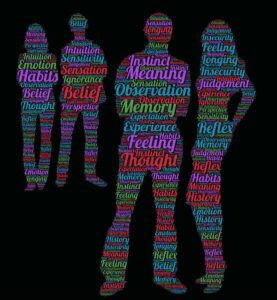
Aphasia is the impairment to communicate, affecting speech and sometimes writing, due to a brain injury. Aphasia typically affects those who have had a stroke, head trauma, brain tumor, Alzheimer’s, neurological disorder or other ailments that may injure the brain.
Aphasia Facts
- Over 1 million Americans are affected by aphasia
- Aphasia varies in severity, depending upon the type of brain injury that caused it and where that injury occurred
- There are 5 main types of aphasia, each with its own specific symptoms depending upon where the damage occurs in the brain
Living with Aphasia
Often those affected by aphasia have the ability to understand that they are having trouble communicating. Expect moments of frustration. It is difficult for both the person who has aphasia and those around them.
Tips to help you deal with someone who has aphasia:
- Try to use yes and no questions that will allow the person with aphasia to simply nod their head to respond.
- It is not necessary to speak loudly, as aphasia does not affect someone’s hearing ability.
- A Speech Language Pathologist can be of great help in showing other ways for a person dealing with aphasia to communicate, such as using a communication board or flash cards.
Having Quality of Life with Aphasia
The National Aphasia Association has a PDF Fact Sheet you can download for free. Knowing the facts will help you understand aphasia and how to deal with it. Depending upon the severity of the aphasia, there may be a chance of nearly full recovery. The important thing to remember is that a person can have a high quality of life while recovering.
- Stay Active – Because aphasia occurs due to an injury to the brain, the most common causes being strokes and Alzheimer’s, there likely will be other impairments. It’s important to stay active and get stronger. (Make sure you have your physician’s approval to begin any exercise regiment)
- Keep Involved – It is important for those who have aphasia to know that they are still an integral part of the family and are a part of family decisions and functions.
- Work With Your Healthcare Team – Generally you will be working with your PCP, Neurologist or other specialist and most likely a Rehab team that could involve a Speech Language Pathologist, an Occupational Therapist & a Physical Therapist.
June is National Aphasia Awareness month & Live Your Life is here to help you stay informed and help you Live Your Life WITH QUALITY.
Dr. Eva Norman
President & Founder
Doctor of Physical Therapy
Live Your Life Physical Therapy, LLC
[1] National Aphasia Association – NAA Website & Materials
What makes us different? Our care comes to you!
View Our Service AreaWe Are A Comprehensive Mobile Company Focused on Wellness, Fitness, Rehabilitation, and Prevention
We specialize in transforming the lives of seniors, adults and teenagers with a wide array of diagnoses and conditions in their home or location of choice. You deserve to be your best self through good health and wellness. We would love to have the privilege to work with you or a loved one.
Request a FREE Consultation Today!